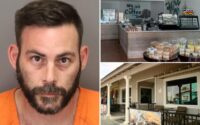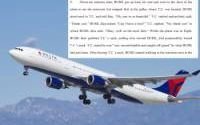Slain Vegas shooting victims’ kin to split shooter’s estate
Families of people killed in the Las Vegas Strip massacre in October 2017 will receive shares of almost all the $1.4 million estate of the man who unleashed the deadliest mass shooting in modern U.S. history and killed himself before police reached him, according to a probate case that ended Thursday in Nevada.
In the next several weeks, a total of almost $1.3 million will be distributed to the families of 61 victims of the shooting, said Alice Denton, the Las Vegas attorney who handled the case with her partner, Jarien Cho, at no cost to the estate of the gunman, Stephen Paddock.
“We have done what we set out to do,” Denton said of the more than five-year process to appraise, sell and distribute proceeds from Paddock’s assets, including two homes and an investment property in Nevada, a vehicle and 49 guns.
“We worked to ensure that the victims’ families received the most that they could,” Denton told The Associated Press. “The guns were destroyed, and the funds will be distributed to the families of the deceased victims according to the direction of the shooter’s mother. None of the money is going to anyone in the Paddock family.”

Fifty-eight people died the night of the shooting, and authorities said two died months later from their wounds. More than 850 people were injured. The list of recipients of shares of Paddock’s estate was sealed by the court, and Denton said she could not disclose the identity of a 61st person or how they died.
“This is not intended in any way to compensate for the loss of these lives. It can’t,” Clark County District Court Judge Gloria Sturman said as she closed the case, the Las Vegas Review-Journal reported.
The guns — including assault-style rifles that authorities found had been fitted with “bump stock” devices to make them fire more rapidly — were purchased for $62,500 by an anonymous donor in January 2019 with the provision that they be turned over to the FBI, according to court records.

Thirty-six of the weapons were destroyed, according to documents the FBI provided on Feb. 28 to the estate, and 13 were kept by the bureau for training purposes.
Las Vegas police and the FBI said they never found a conclusive motive for Paddock to rain gunfire from a 32nd-floor suite at the Mandalay Bay resort into an open-air concert audience of 22,000 people across Las Vegas Boulevard. Recent disclosures of material collected by the FBI and letters released by Las Vegas police have provided new looks at the case, but no additional answers.
Paddock was a 64-year-old retired postal service worker, accountant and real estate investor with a penchant for guns and gambling, and homes in Reno and Mesquite, a retirement community more than an hour’s drive from Las Vegas. His investment property was in suburban Henderson.
His father was a notorious bank robber and federal prison escapee once listed on the FBI most-wanted list. Stephen Paddock held a private pilot’s license, and he sometimes wagered tens of thousands of dollars at a time playing video poker.
Police and the FBI concluded that Paddock meticulously planned the shooting, burned through more than $1.5 million of personal savings and distanced himself from his girlfriend and family in the months before the Las Vegas shooting.
A settlement totaling $800 million was reached in September 2020 between casino company MGM Resorts International and its insurers with more than 4,400 relatives and victims of the shooting to resolve lawsuits involving plaintiffs from nearly every state in the U.S., at least eight Canadian provinces, the United Kingdom, Iran and Ireland.


